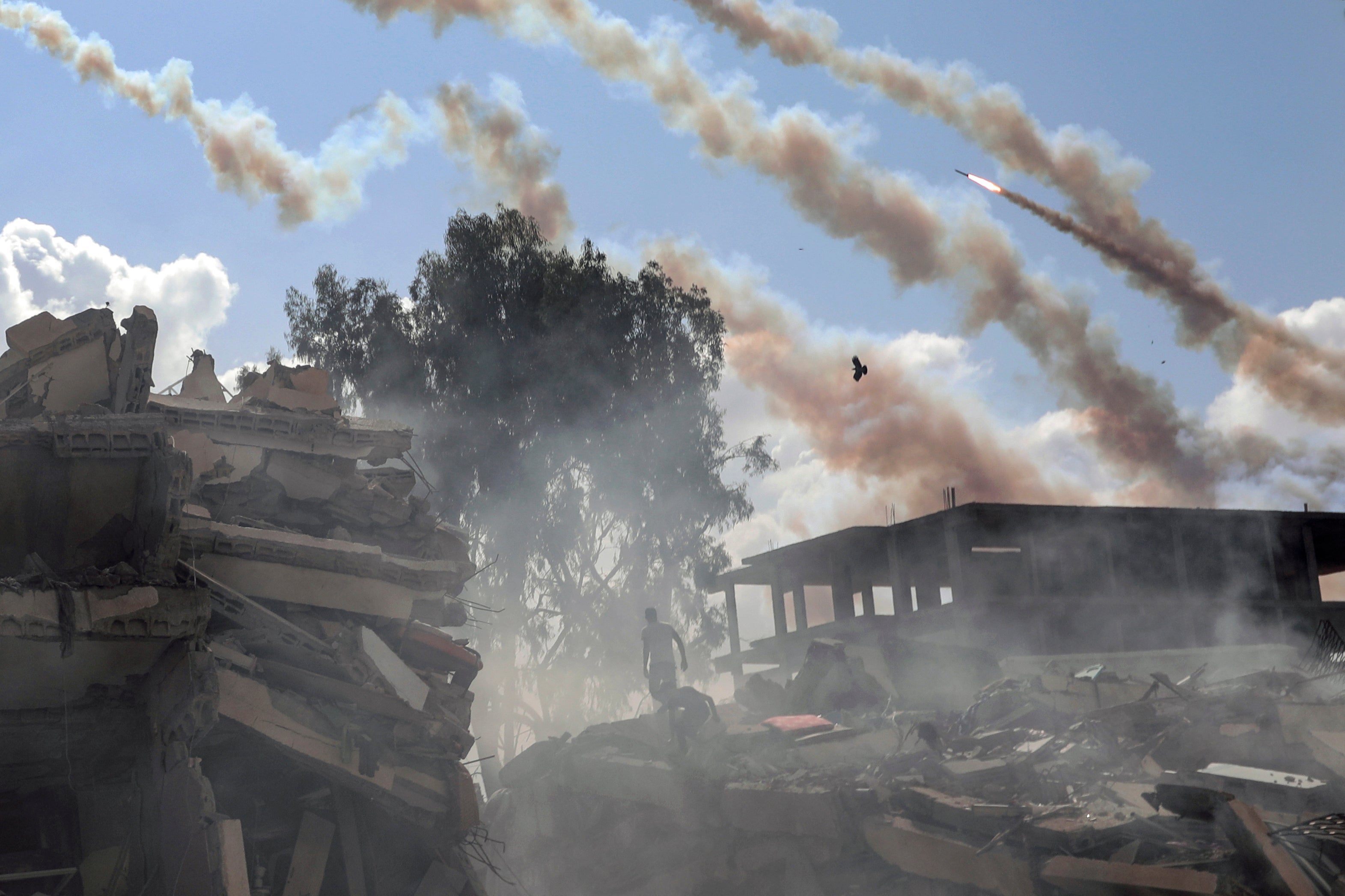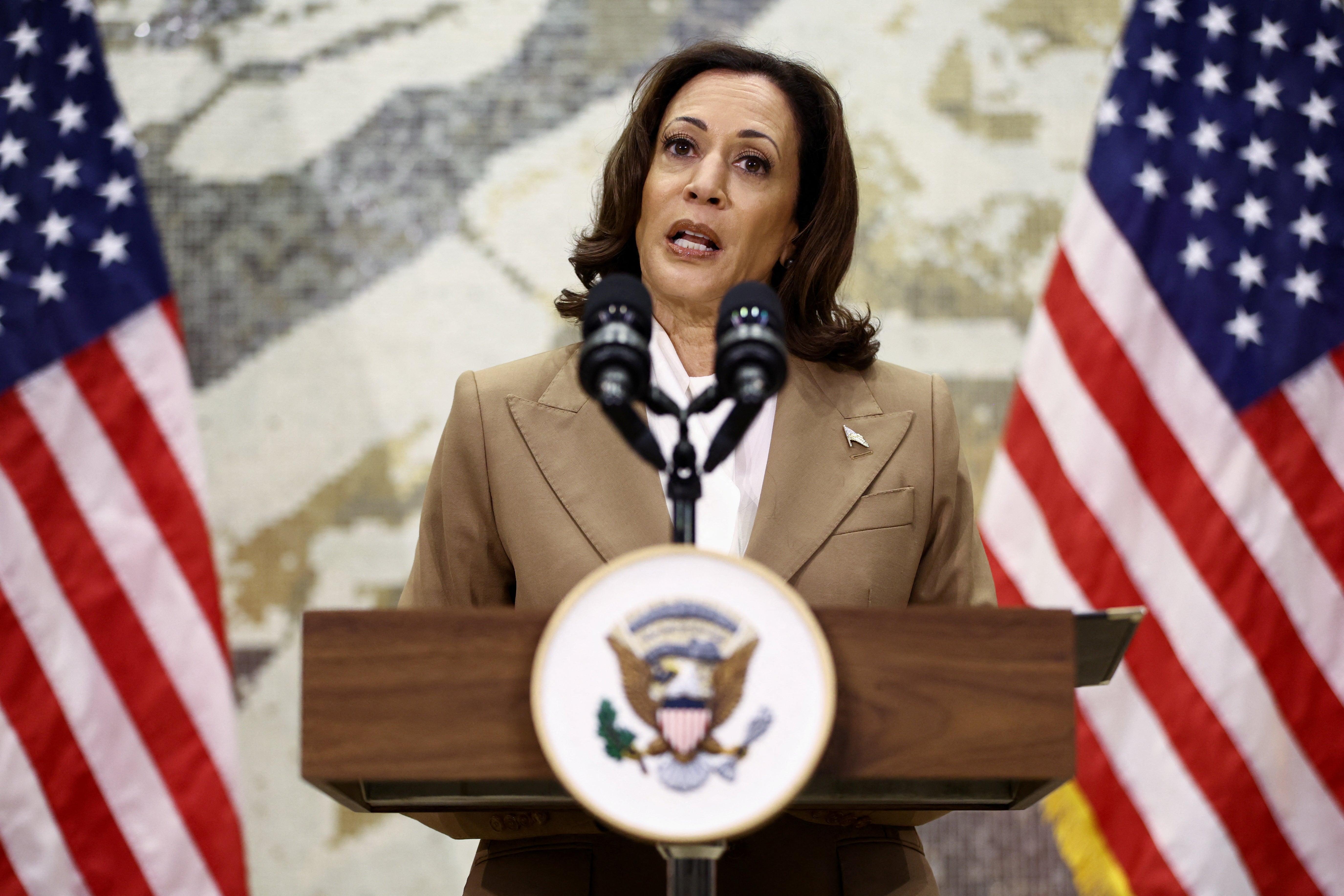Israel pulls out of ‘dead end’ ceasefire negotiations as it strikes hundreds of Gaza targets
After a week’s respite, black smoke billowed over the skyline once more as Israel resumed pounding hundreds of targets in the Gaza Strip
Hopes of a ceasefire between Israel and Hamas took a hammer blow on Saturday after Israeli Prime Minister Benjamin Netanyahu dramatically ordered officers from his Mossad intelligence agency to leave Qatar.
The Gulf nation has so far brokered a deal that saw more than 100 hostages freed as well as the implementation of a week-long truce, which ended abruptly on Friday morning with the resumption of heavy air strikes on Gaza and rocket fire into parts of Israel.
A statement issued on behalf of Mossad said: "The Hamas terror organization did not fulfill its part of the agreement, which included the release of all children and women according to a list that was provided to Hamas and approved by it.”
Hamas countered that Israeli authorities had made a “predetermined decision to resume the criminal aggression.”
Negotiations in Qatar to resume a humanitarian pause in the Gaza Strip have “reached a dead end”, the office of Israeli prime minister Benjamin Netanyahu confirmed yesterday. Despite this, former Israeli hostage negotiator Gershon Baskin told The Independent that Mr Netanyahu’s decision to end talks is likely to be a “negotiating tactic”.

Yet by Saturday night, question marks over Israel’s strategy were mounting on Netanyahu, who has already come under heavy criticism for the intelligence failures leading to the attack on October 7th.
AP reported Israel saying it had intercepted a volley of rockets fired from Gaza about an hour before the cease-fire was to expire early Friday. Minutes after it expired, the Israeli military announced a resumption of combat operations, and strikes soon began.
Throughout Saturday, Israel’s military continued to press ahead with its devastating bombing campaign over Gaza, pounding the southern city of Khan Younis with unrelenting air strikes.
After a week's respite, black smoke billowed over the Gazan skyline once again and destruction was widespread. The death toll in Israel’s renewed bombing of the Gaza Strip reached three figures in less than a day, Palestinian officials said. Local residents said it was the heaviest day of bombardment since the start of the war.
The city of Khan Younis had once been a refuge for those fleeing Israel’s ground invasion of Northern Gaza, which began in late October. It has now become the epicenter of Israeli military operations.
"There is no place to go," Emad Hajar, who fled with his wife and three children from the north a month ago to Khan Younis, told agency reporters. "They expelled us from the north, and now they are pushing us to leave the south."
Many internally displaced residents have been camping in tents, schools or in the grounds of hospitals since fleeing south from Gaza City.

Since Friday morning, at least 193 people have been killed and 650 injured, according to figures released by the Hamas-run Gaza health ministry. “Hell on Earth has returned to Gaza,” said Jens Laerke, spokesperson for the United Nations humanitarian office in Geneva.
To the East of Khan Younis, residents of multiple Palestinian border towns were ordered to leave their homes, in a move that appeared to be laying the foundation for a possible ground invasion into southern Gaza.
Fliers dropped over the area emblazoned with the logo of Israel’s Defence Forces ordered residents to “evacuate immediately to shelters in the Rafah area”. The fliers ended with the ominous line: “You have been warned.”
Those who have chosen to heed the fliers warning join the nearly 80 per cent of Gaza’s residents - or 1.8 million people - who have been forced to flee their homes during Israel’s offensive, according to estimates by the UN.
On Israel’s northern border with Lebanon, missile skirmishes continued for a second day. Iran-backed militia group Hezbollah said one of its fighters was killed.
With the death toll across the region rising once again – and Israel’s military appearing to prepare for a southern ground invasion –Netanyahu has faced renewed international pressure to limit civilian casualties and intensify efforts to reach a ceasefire.
In a ‘side-bar’ meeting at COP28 – which has become a de-facto meeting hub for multilateral discussions around the Israel-Hamas war – US Vice-President Kamala Harris told Egyptian President Abdel Fattah el-Sisi: “under no circumstances will the United States permit the forced relocation of Palestinians from Gaza or the West Bank, the besiegement of Gaza, or the redrawing of the borders of Gaza.”
French President Emmanuel Macron, also at COP28, said France was "very concerned" by the resumption of violence in Gaza.
Yet the largest source of pressure on Netanyahu comes from the families of the 137 hostages who remain in Gaza. Many gathered at a large demonstration in Tel Aviv’s ‘Hostage Square’ on Saturday evening, in support of those who are yet to be freed.
Speaking on stage for the first time since her two children, 12-year-old Erez and 16-year-old Sahar, were released from Hamas captivity as part of the hostage deal, Hadas Kalderon told the crowd of thousands: “Release everyone else now, now!”
This article was amended on 5 December 2023 to include additional reporting around the resumption of military hostilities.
Join our commenting forum
Join thought-provoking conversations, follow other Independent readers and see their replies
Comments
Bookmark popover
Removed from bookmarks